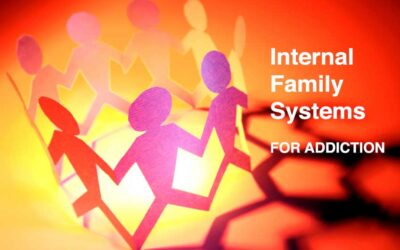One of the most frequent objections I hear as a therapist, is the objection by clients who don’t see what the point is of re-experiencing unpleasant memories and emotions from the past.
“How is feeling sad going to help me?” they ask.
Or: “How is getting angry at people in my life who mistreated me really going to serve me?”
Here is my answer to their concerns…
The Desire to Be Rid of Negative Emotions:
Anger, sadness, loneliness, emptiness, despair, grief; these are all emotions that many people don’t know what to do with, and would most of all like to dump in a dumpster or bury deep underground.
And so they typically do…
They try to quarantine pockets of unpleasant experiences from the rest of their life, and spend much of their time trying to actively repress, ignore, rationalize, or minimize how they really feel.
Why Emotions Should Not Be Pushed Away
Of course emotions don’t go anywhere just because we don’t want to feel them. The more we fight them, the more havoc they generally wreak on our lives:
- You don’t want to be overcome by grief at the passing of your beloved mother, so you push your grief away. Now the grief instead becomes a depression and the loss, which can never be mourned, a perpetual companion rather than a passageway to a better place.
- You don’t want to feel angry at your parents for the mistreatment you felt as a child, so you tell yourself it really wasn’t that bad. Now instead your unexpressed anger interferes with your ability to have a REAL relationship with your parents, or gets pushed down so far that when it finally erupts, it erupts as rage.
- You don’t want to get in touch with the loneliness and emptiness that haunts your marriage, so you try to distract yourself by going on expensive trips, redecorating your house, or having another child. Now instead the emptiness becomes a perpetual hollowness, and the lack of satisfaction in your marriage the cause of a manic frenzy of activity that never quite fills the underlying void.
The Price We Pay for Ignoring Our Emotions:
As a general rule the more we fight our emotions, the bigger and “badder” they become. If we don’t allow ourselves to feel them and to hear what they have to tell us, they will keep haunting us until we finally get their message. Fighting them is a losing battle and we always pay a price for denying their reality.
As long as we are not at peace with ourselves, but must deny aspects of our emotional reality in order to feel good, a sense of genuine happiness, calmness, and self-acceptance can never take root.
By getting rid of the “bad”, we also ironically get rid of the “good”.
Why? Because we divert our energy from a path of genuinely accepting ourselves, and replace it with a perpetual fight to deny the realness of our own experiences, which means denying the reality of who we are. Happiness constructed on such as a deceitful basis is not real happiness, but a flight from ourselves that can only lead to perpetual unrest.
The Benefits of Our Negative Emotions:
Contrary to what many people think, all emotions are adaptive and purposeful when experienced accurately and expressed appropriately.
Anger, which to many people can feel scary and unsafe to express, is a signal to us that our boundaries have been violated or that we feel mistreated in some way. If we allow ourselves to experience our anger, examine what boundaries might have been crossed, assess the accuracy of our evaluation of the situation, and express our concerns in a calm and constructive manner, our anger will have served its purpose. Our needs can now become known to others, disagreements can be resolved, relationships can be repaired, and we can command respect even when relationships need to be severed.
Sadness also serves a purpose. It tells us what matters to us, or alerts us to what we are missing. If we can allow ourselves to feel it, we will become wiser about our needs and longings, or the things we missed when growing up. Sadness can lead to self-examination, and can lead to greater acceptance of that which we cannot change. It can also lead to greater clarity about what we really value in life and how we should move ahead. When expressed to others in an appropriate way it can bring others closer to us, invite comfort and caring, and make us feel that we are less alone.
Emotions are Really Movements not States:
The myth about unpleasant emotions is that they are rather static experiences that simply take us over, dominate us, and keep us stuck. However, emotion is really more accurately described as a process or a movement. It is derived from the Latin verb “movere” which means “to move”.
Emotions help move us or motivate us, they give us direction, help us to clarify our thoughts and priorities, and serve as vehicles for making changes to our life. Only when we do not allow ourselves to move with them, do they become static road blocks: obstacles rather than passageways.
So to those clients who wonder, “why should I feel my unpleasant emotions?”, my answer is, “to let them move you to a different place”.
By moving into them, you move through them, and by moving through them, they move you to a different place.
By not fighting your negative emotions, you will be transported to the other side, where they no longer bother you, because they have now served their purpose and set you free.
 About me: I am Rune Moelbak, Ph.D. a psychologist in Houston, TX who believes good therapy involves a transformation through your emotions. To read more about the process of therapy, visit my therapy website.
About me: I am Rune Moelbak, Ph.D. a psychologist in Houston, TX who believes good therapy involves a transformation through your emotions. To read more about the process of therapy, visit my therapy website.







